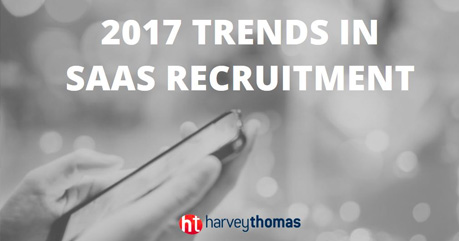The Impact of AI on Recruitment
There’s no denying that open-source AI platforms like ChatGPT are here to stay. The big question for many organisations is how to harness their benefits and mitigate against any perceived or actual risks.
Recruiters and employers across the globe are grappling with this right now, as we see the potential for ChatGPT to reduce administrative burden and help plug skills gaps. But where do we draw the line between creating a human experience compared to tech-led, and who is most at risk? The employer? The candidate? Or the recruitment industry as it currently exists?
In this blog, we run a detailed analysis of the impact of AI on recruitment.
Advantage 1 – Writing Simple Content
ChatGPT and other open-source AI software can support recruiters and hiring managers with various writing tasks, such as crafting job descriptions, job ads, candidate summaries and interview questions. By leveraging its language-generation capabilities, ChatGPT can create clear, concise content that effectively communicates and engages its intended audience.
This saves time and supports recruitment and HR professionals who struggle with writing engaging and compelling content as part of their roles. If done well, the result is well-structured, grammatically correct content that appeals to readers while maintaining a consistent tone of voice and style. And for eary-stage SaaS leaders without established HR support, this can be perceived as a real time-saver.
Advantage 2 – Streamlined Candidate Engagement
Chatbots powered by ChatGPT can streamline basic candidate interactions by automatically responding to frequently asked questions. For example, they can provide information about application status, confirm interview times, and answer basic queries about the hiring organisation and team.
It’s fair to suggest that candidates will appreciate receiving instant responses around the clock, while recruiters and hiring managers can reduce the burden of handling repetitive inquiries. This can then free up more time for them to focus on complex candidate interactions, such as providing feedback after interviews or negotiating offers.
Advantage 3 – Understanding Complex or Technical Language
Recruiters and hiring managers often encounter roles that involve complex or technical language, including in the SaaS industry. ChatGPT can be a valuable tool in understanding these roles and effectively communicating their intricacies.
Recruitment and HR professionals, although specialists in their respective fields, may need to quickly adapt their knowledge base to cover specific professions they recruit for. For example, our team at Harvey Thomas are specialists in SaaS recruitment and we have built an understanding of our industry (including the language and jargon used) over many years.
For recruitment or HR professionals looking to shortcut their technical understanding, ChatGPT can help them grasp difficult terminology, expand their knowledge base and engage with candidates more confidently.
Disadvantage 1 – Lack of Nuance
You may have noticed the inclusion of words like “basic” candidate engagement and “simple” content in our previous sections. At this point in time, ChatGPT falls short when it comes to understanding the subtle nuances that human recruiters can navigate effortlessly.
The expertise and intuition of human recruiters are essential when evaluating candidates holistically taking into account factors such as soft skills, the cultural fit and industry-specific nuances. In contrast, ChatGPT may miss the unique skills and attributes that make a candidate an ideal fit for a specific role.
Disadvantage 2 – Errors and Hallucinations
ChatGPT relies entirely on the patterns and examples from its training data as an AI model. This can lead to inaccuracies, inconsistencies or the generation of false information. ChatGPT has also been known to experience hallucinations, which means it can generate content that seems plausible (and it believes is factually correct) but is not actually supported by real-world data.
Disadvantage 3 – Limited Contextual Understanding:
Another drawback of ChatGPT is its limited contextual understanding. While the model can generate responses based on the input it receives, it can struggle to fully understand the broader context or underlying intentions behind certain queries or conversations. This can lead to responses that may be technically accurate but not address a person’s specific needs or concerns.
It cannot draw on personal experiences or apply wider developments, such as world events or industry changes, which may significantly impact recruitment. Finally, ChatGPT may struggle with ambiguity or instances that require subjective judgement. In contrast, human recruiters can assess candidates holistically, understand their motivations and evaluate their contribution beyond technical qualifications.
On the Fence: Addressing Bias in Recruitment
Recruiters and employers have their own unconscious biases that can impact decision-making during the hiring process. Using ChatGPT can, in some ways, mitigate bias by evaluating candidates based solely on predetermined criteria. It can also help address biased and discriminatory language issues when writing job descriptions and ads, ensuring consistent inclusivity throughout the documents.
However, there is a risk that ChatGPT may reflect the bias present in its training data, perpetuating stereotypes or inadvertently using biased language. Also, as outlined above, AI doesn’t have the nuanced capability to understand the context and could lead to misunderstandings or errors.
On the Fence: Reliance on Technology
While technology can help improve efficiencies and reduce administrative burdens for recruiters and hiring managers, it also risks dehumanising the process. Candidates appreciate authentic conversations, empathetic listening and the ability to address their specific concerns and needs. Technology should serve as an enabler, assisting recruiters in automating repetitive tasks and providing data-driven insights.
Human oversight throughout all stages is still necessary, and people working in recruitment will need to upskill themselves to brief and manage ChatGPT effectively. Collaboration between human recruiters and AI tools can only address concerns regarding bias, productivity and accuracy.
So, Ultimately…Will ChatGPT Replace Recruiters?
While ChatGPT and other AI technologies have the potential to revolutionise the recruitment industry, the question of whether they will replace recruiters entirely is a complex one. The short answer is no.
While ChatGPT offers numerous advantages, it falls short in critical areas that require human expertise. The human touch, nuanced decision-making and personalised interactions that recruiters bring to the table are irreplaceable.
If you’d like to talk more to our team about how you can harness the potential of ChatGPT or discuss how we can help you navigate through these changes, please get in touch today.


